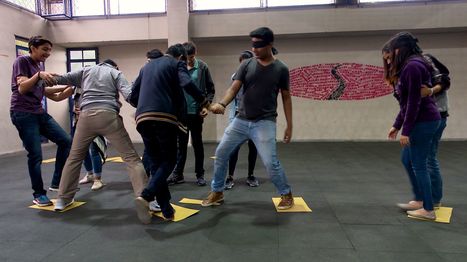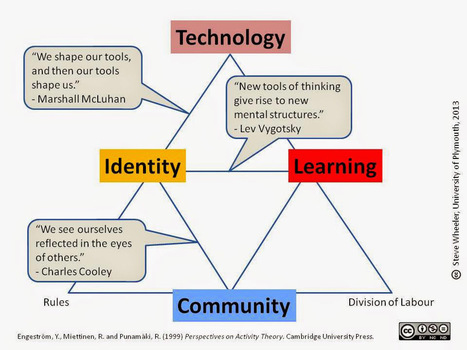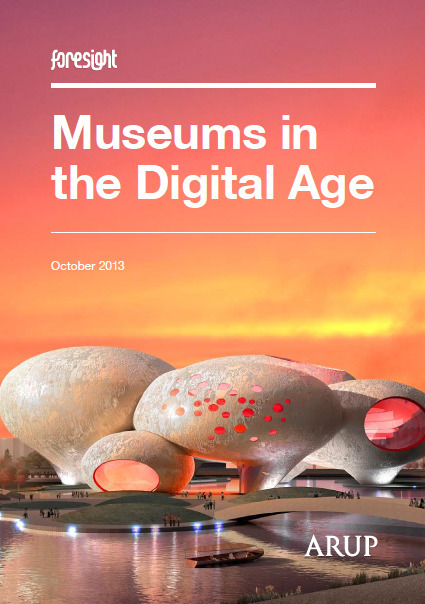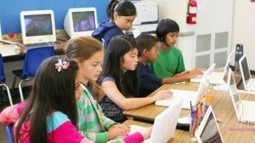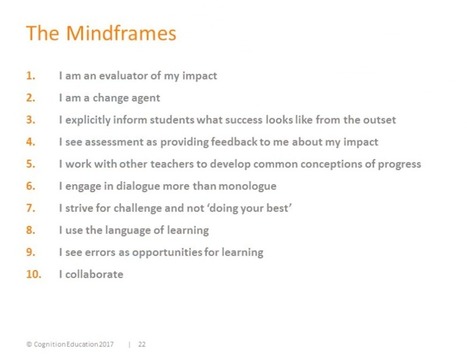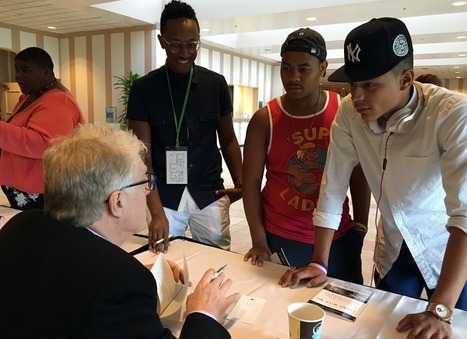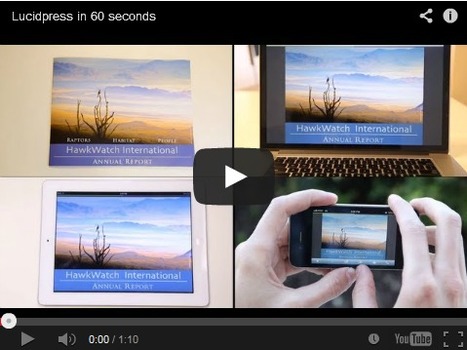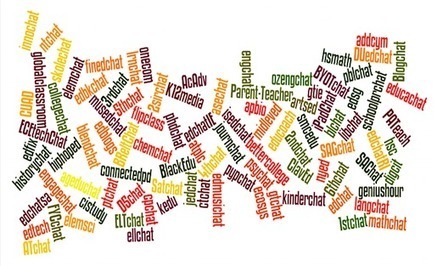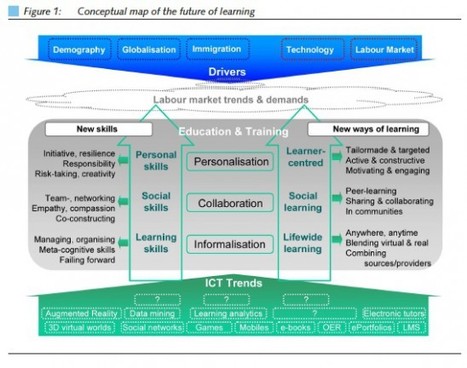 Your new post is loading...
 Your new post is loading...
By Emelina Minero "Teachers have long known that feeling safe and secure in school helps students focus their energy on learning. And the research bears that out: A 2018 studyfound that when teachers deliberately foster a sense of belonging by greeting each student at the door of the class, they see “significant improvements in academic engaged time and reductions in disruptive behavior.” "Edutopia covered that study last year, and we’ve shared many other ideas from teachers for ensuring that every student in the classroom feels like they belong. "Some of the activities below take less than five minutes. They’re divided up among the grades, but many can apply across all of the years from kindergarten to 12th grade."
Via Tom D'Amico (@TDOttawa) , Jim Lerman
The career landscape is changing dramatically. The Bureau of Labor Statistics states that the average worker currently holds ten different jobs before the age of forty. This requires a high degree of flexibility and adaptability. Students who leave high school
Via Tom D'Amico (@TDOttawa)
How The Activity Learning Theory Works
Vygotsky’s earlier concept of mediation, which encompassed learning alongside others (Zone of Proximal Development) and through interaction with artifacts, was the basis for Engeström’s version of Activity Theory (known as Scandinavian Activity Theory). Engeström’s approach was to explain human thought processes not simply on the basis of the individual, but in the wider context of the individual’s interactions within the social world through artifacts, and specifically in situations where activities were being produced.
In Activity Theory people (actors) use external tools (e.g. hammer, computer, car) and internal tools (e.g. plans, cognitive maps) to achieve their goals. In the social world there are many artifacts, which are seen not only as objects, but also as things that are embedded within culture, with the result that every object has cultural and/or social significance.
Tools (which can limit or enable) can also be brought to bear on the mediation of social interaction, and they influence both the behavior of the actors (those who use the tools) and also the social structure within which the actors exist (the environment, tools, artifacts). For further reading, here is Engeström’s own overview of 3 Generations of Activity Theory development. The first figure shows Second Generation AT as it is usually presented in the literature.
Via Gust MEES, Jim Lerman
This report highlights a number of key trends that will have a significant impact on the user experience and design of future collections and museums.
Via Robin Good
by Ian Quillen
"...students like Sam Blazes and Wilfried Hounyo, two winners in the 2012 National STEM Video Game Challenge, say they see their passion for computer programming is potentially leading them into a wide range of future professions.
“There’s no specific place you can plan on going because there are so many different things you can do with programming,” Blazes told an audience during a panel discussion at The Atlanticmagazine’s Technologies in Education Forum earlier this month. “You can do pretty much anything with it that you can program.”
"That’s because computer programming is a study of languages more than of technology or mechanics. And command of those languages allows programmers to control the functionality of anything that is driven by a computer.
"For example, Blazes and Hounyo, both now high school students in the Washington, D.C. area, each won acclaim for helping to design educational video games. But they both said they initiallyembraced programming through school robotics clubs, where students not only build robots, but work to write code that can control robots’ movements and reactions. And as Blazes pointed out, the same skills could also be used for a wide range of career purposes, such as constructing meteorological simulations, making financial predictions, or creating personalized online learning curricula."
MOOC = Massive Open Online Course
"This space will act as an information hub for #etmooc, an open, online experience that is designed to facilitate & nurture conversations around the thoughtful integration of educational technology & media in teaching and learning.
Think of #etmooc as an experience situated somewhere between a course and a community. While there will be scheduled webinars and information shared each week, we know that there is a lot more that we will collectively need to do if we want to create a truly collaborative and passionate community.
We’re aiming to carry on those important conversations in many different spaces – through the use of social networks, collaborative tools, shared hashtags, and in personalized spaces. What #etmooc eventually becomes, and what it will mean to you, will depend upon the ways in which you participate and the participation and activities of all of its members. Let’s see if we can create something that is not just another hashtag – and, not just another course.
Some exciting topics will be explored during the #etmooc experience. We’ll be leading conversations around many of the recently popularized technologies, media and literacies including social/participatory media, blended/online learning environments, digital literacies, open education, digital citizenship/identity, copyright/copyleft, and multimedia in education. We hope that this list of topics will grow as we expand our membership and tap into the expertise of our participants. However it is not the topics that we cover, but it is what we discover, create and share together that will be critical to the success of the etmooc experience."
"Topics & Tentative Schedule
The 2013 tentative schedule of topics is found below. More detailed information will be provided soon, including exact dates and connection information. Each topic is 2 weeks long so that there is adequate attention and depth.
Welcome (Jan 13-19): Welcome Event & Orientation to #etmooc
- Topic 1 (Jan 20-Feb. 2): Connected Learning – Tools, Processes & Pedagogy
- Topic 2 (Feb 3-16): Digital Storytelling – Multimedia, Remixes & Mashups
- Topic 3 (Feb 17-Mar 2): Digital Literacy – Information, Memes & Attention
- Topic 4 (Mar 3-16): Digital Citizenship – Identity, Footprint, & Social Activism
- Topic 5 (Mar 17-30): The Open Movement – Open Access, OERs & Future of Ed."
Via Dennis Richards

|
Scooped by
Jim Lerman
|
By Henry Jenkins Howard Rheingold has been one of the smartest, most forward thinking, most provocative writers about digital culture for the past several decades. He’s someone who always makes me think. Even a short hall way chat with Howard at a conference can lead to transformative insights about how we live within a networked culture. I have been lucky to know him for more than two decades now, and I treasure every interaction I’ve ever had with the guy. Your progression from work on virtual communities to smart mobs to digital literacies says something about the evolution of digital culture over the past few decades. What has led you right now to focus so much on giving everyday people the skills they need to more meaningfully participate in the new media landscape? -------------------- (E-Learning Students! I highly recommend this series of articles to anyone seeking a solid conntext for the work we are doing in social communication. ~ Dennis)
This is a great presentation, containing rich images and video. Alec Couros (@courosa) is making a somewhat fine distinction between digital literacies and digital fluency, but overall, the content of this presentation is what we have explored in CT231 Professional Skills within the context of digital literacies. Worth a view.
Via ewaadam, Catherine Cronin

|
Rescooped by
Jim Lerman
from gpmt
|
"Innovative teaching happens more in environments where teachers collaborate. In schools where teachers report more frequent collaboration with one another on teaching practices, innovative teaching scores tend to be higher... Teachers told us that collaboration can be an important mechanism for sharing teaching practices and for mutual support toward improving them."
Via Nik Peachey, Jim Lerman, Barbara Bray, michel verstrepen

|
Rescooped by
Jim Lerman
from gpmt
|
"What will have the greatest impact on American higher education in the next ten years? Think of two long-standing exponential trends: the explosive rise in processing power and perhaps the even faster rise in information-sharing – a trend most pronounced in social networks. With strong demand for innovation in the university environment, a rise in collaborative, digitally-integrated educational technologies is likely to make education more affordable, more efficient and more relevant to our future workforce."
Via k3hamilton, michel verstrepen
|
Education may be the passport to the future, but for all the good teaching out there, it would seem that schools are failing to impart some of the most important life skills, according to one educational expert.
Dr. Tony Wagner, co-director of Harvard's Change Leadership Group, argues that today’s school children are facing a “global achievement gap”, which is the gap between what even the best schools are teaching and the skills young people need to learn.
This has been exacerbated by two colliding trends: firstly, the global shift from an industrial economy to a knowledge economy, and secondly, the way in which today’s school children – brought up with the internet – are motivated to learn.
In his book The Global Achievement Gap, Wagner identifies seven core competencies every child needs in order to survive in the coming world of work.
1. Critical thinking and problem-solving 2. Collaboration across networks and leading by influence 3. Agility and adaptability 4. Initiative and entrepreneurialism 5. Effective oral and written communication 6. Accessing and analysing information
Via Gust MEES, Jim Lerman
that it’s important for young people to become economically independent and self-sufficient. But to do that, he argues, they shouldn’t all learn the same thing. Instead, they should be learning to be adaptable, to be innovative, to flow with change, to collaborate and other globalized skills that will apply to whatever area of work they are passionate about pursuing. An education can help expose students to different life paths and support them in finding their passions, while giving them the transferable skills to attack any problem. Learn more / En savoir plus / Mehr erfahren: http://www.scoop.it/t/21st-century-learning-and-teaching/?tag=Sir-Ken-Robinson
Via Gust MEES, Jim Lerman
"Lucidpress is a slick new service from the same team that developed Lucidchart. Lucidpress is a slick tool for collaboratively creating multimedia documents."
Beth Dichter's insight: Richard Byrne has explored Lucidpress, a new tool from the creators of Lucidchart (which is one of the best deals around for educators for creating mindmaps) and states "I look at Lucidpress as being the best of Apple's Pages and the best of Google Documents combined into one slick service." Like Lucidchart this tool is built for collaboration. The site states “receive feedback from coworkers…collaborate with anyone on any browser, anywhere. With live chat, document presence, and commenting, you’ll never have to compile scribbled feedback…” Educators will be pleased to hear that free accounts are available. To go directly to the video click through to Richard Byrne's post. To go directly to Lucidpress:https://www.lucidpress.com.
Via Beth Dichter
SIXTEEN new Changemaker Schools join Ashoka to inspire children to be changemakers!
Via The Ashoka Community
TWITTER TRANSFORMS EDUCATORS
Before the advent of Twitter, most educators I know had limited opportunities to collaborate with colleagues outside their building. Some subscribed to listservs or participated in online forums, but these outlets lacked critical mass; teachers also networked at in-person conferences and training sessions, but these isolated events didn't provide ongoing support.
Enter Twitter. I've heard many educators say that Twitter is the most effective way to collaborate and that they've learned more with Twitter than they have from years of formal professional development. Here are some of the specific ways educators are using Twitter to collaborate: Read more: http://www.pbs.org/mediashift/2012/09/how-twitter-is-reinventing-collaboration-among-educators272.html
Via Gust MEES, João Greno Brogueira, Giselle Pempedjian, Timo Ilomäki
Lengthy written interview of Rheingold by Roland Legrand, accompanied by a 1 hour video of Rheingold. -JL "Straight talking from Howard Rheingold: the importance of tech skills, mindfulness, crap detection, participation and collaboration. Howard's new book is Net Smart. (Interview via Media Shift)"
Via Catherine Cronin

|
Scooped by
Jim Lerman
|
By Kelly Meeker ...the magic of the curator: Putting in the work to find the content that matters and assembling objects, ideas, and media into an experience that is meaningful to the consumer. And it's not just art, wine, and books that need a good curator—information does as well.
The Vision From the executive summary:
"Personalisation, collaboration and informal learning will be at the core of learning in the future. The increased pace of change will bring new skills and competences to the fore, in particular generic, transversal and cross-cutting skills….
With the evolution of ICT, personalised learning and individual mentoring will become a reality and teachers/trainers will need to be trained to exploit the available resources and tools to support tailor-made learning pathways and experiences which are motivating and engaging, but also efficient, relevant and challenging…"
Redecker, C. et al. (2011) The Future of Learning: Preparing for Change Seville Spain: Institute for Prospective Technological Studies, JRC, European Commission
Via Kathleen McClaskey
|



 Your new post is loading...
Your new post is loading...

